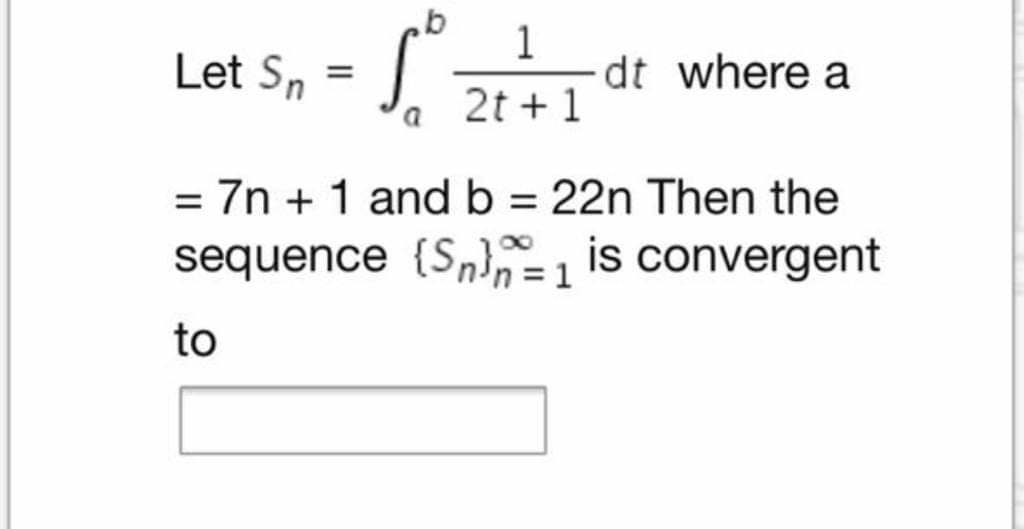Question Number 88462 by M±th+et£s last updated on 10/Apr/20

Commented by mathmax by abdo last updated on 10/Apr/20
![S_n =∫_(7n+1) ^(22n) (dt/(2t+1)) ⇒S_n =[(1/2)ln(2t+1)]_(7n+1) ^(22n) =(1/2)( ln(44n+1)−ln(14n +1)) =(1/2)ln(((44n+1)/(14n+1))) ⇒lim_(n→+∞) S_n =(1/2)ln(((44)/(14)))=(1/2)ln(((22)/7))](https://www.tinkutara.com/question/Q88469.png)
$${S}_{{n}} =\int_{\mathrm{7}{n}+\mathrm{1}} ^{\mathrm{22}{n}} \:\frac{{dt}}{\mathrm{2}{t}+\mathrm{1}}\:\Rightarrow{S}_{{n}} =\left[\frac{\mathrm{1}}{\mathrm{2}}{ln}\left(\mathrm{2}{t}+\mathrm{1}\right)\right]_{\mathrm{7}{n}+\mathrm{1}} ^{\mathrm{22}{n}} \\ $$$$=\frac{\mathrm{1}}{\mathrm{2}}\left(\:{ln}\left(\mathrm{44}{n}+\mathrm{1}\right)−{ln}\left(\mathrm{14}{n}\:+\mathrm{1}\right)\right) \\ $$$$=\frac{\mathrm{1}}{\mathrm{2}}{ln}\left(\frac{\mathrm{44}{n}+\mathrm{1}}{\mathrm{14}{n}+\mathrm{1}}\right)\:\Rightarrow{lim}_{{n}\rightarrow+\infty} \:{S}_{{n}} =\frac{\mathrm{1}}{\mathrm{2}}{ln}\left(\frac{\mathrm{44}}{\mathrm{14}}\right)=\frac{\mathrm{1}}{\mathrm{2}}{ln}\left(\frac{\mathrm{22}}{\mathrm{7}}\right) \\ $$
Commented by M±th+et£s last updated on 10/Apr/20

$${thank}\:{you}\:{sir} \\ $$
Commented by turbo msup by abdo last updated on 11/Apr/20

$${you}\:{are}\:{welcome} \\ $$
